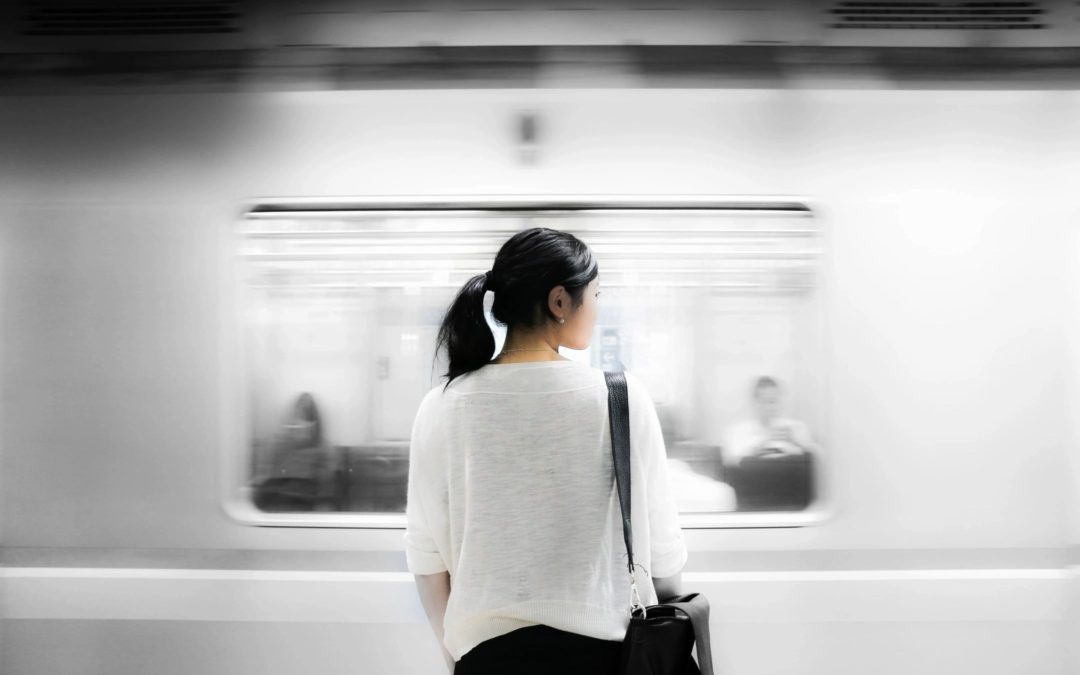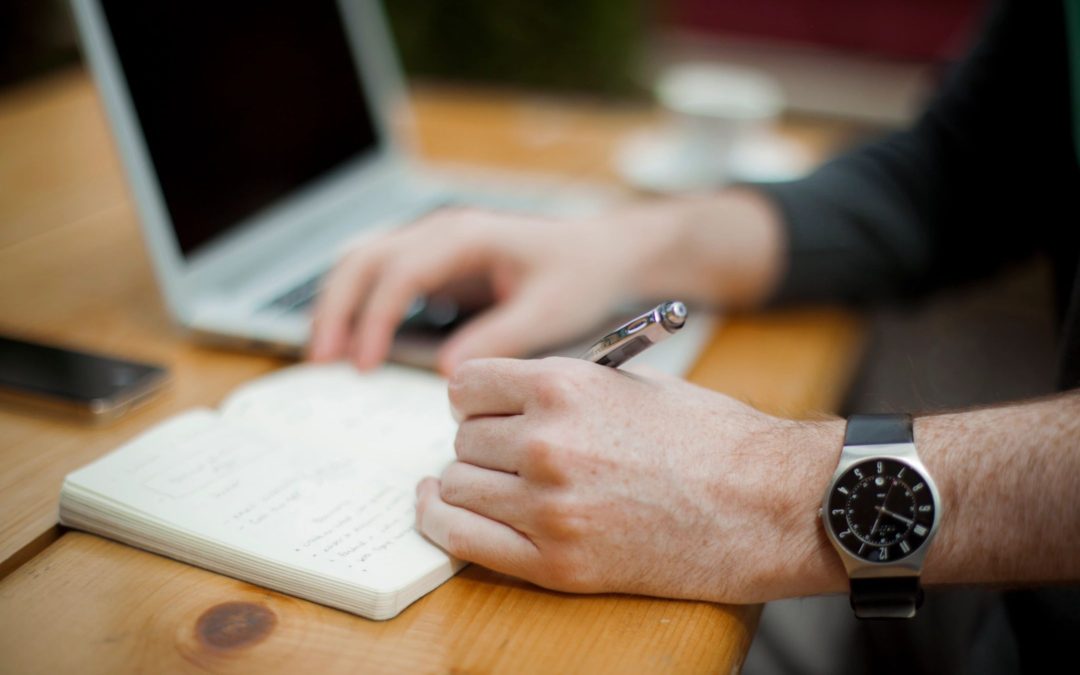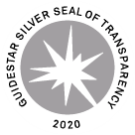
by Dan | Jun 10, 2020 | Uncategorized
 The First Amendment guarantees Americans’ rights to freedom of religious expression and practice, but does the First Amendment’s protections go as far as ensuring people are legally permitted to congregate in-person, particularly during a public health crisis?
The First Amendment guarantees Americans’ rights to freedom of religious expression and practice, but does the First Amendment’s protections go as far as ensuring people are legally permitted to congregate in-person, particularly during a public health crisis?
This question remains to be concretely answered by the courts, but we’ve already seen several religious institutions challenging states’ stay-at-home orders and/or social distancing regulations by either filing a lawsuit or opening their doors to congregants without the state’s permission. In one tragic incident, a pastor dismissed the pandemic as “hysteria” and later died of Covid-19 after contracting it at Mardi Gras.
The problem with in-person services during a pandemic, Vanderbilt University’s infectious disease expert William Schaffner said in an interview with Business Insider, is that “people congregate, hug each other, exchange stories, and thank you very much, the virus is going to go from me to you.”
Of course, as the New York Times points out, a vast majority of religious leaders and institutions are taking the pandemic seriously by hosting virtual services, connecting with congregants over video conferencing apps like Zoom, leading remote reading groups, and seeking out ways to positively impact their communities during this time.
So if most other churches, synagogues, mosques, temples and religious institutions are capable of delivering their services remotely, why are there so many First Amendment issues coming up in the media and courts? Let’s examine what’s going on (as of June 2020):
Court Challenges Against States & Governors
Religious leaders from across the country have varied in their responses to state-imposed restrictions on large group gatherings, but those that have engaged in legal battles with state governors haven’t been too successful in court so far.
For instance, South Bay United Pentecostal Church and its leader Bishop Arthur Hodges filed a request to exempt their organization from California Governor Gavin Newsom’s emergency state-at-home orders. The request was declined in a 2-1 decision by the 9th Circuit Court of Appeals late on May 24, with the dissenting judge – President Trump appointee Daniel Collins – writing,
By explicitly and categorically assigning all in-person ‘religious services’ to a future Phase 3 — without any express regard to the number of attendees, the size of the space, or the safety protocols followed in such services — the State’s Reopening Plan undeniably ‘discriminate[s] on its face’ against ‘religious conduct.’
Similar challenges have occurred in states like Oregon, where a judge briefly overturned Governor Kate Brown’s stay-at-home orders (before the state successfully requested a reinstatement of the restrictions from their Supreme Court a few hours later). Notably in the case of Oregon, most of the legal challenges have come from religious groups but the actual legal challenge wasn’t grounded in First Amendment principles as you might expect; the challenge arose from Oregon state laws requiring a governor to get Legislature permission for extending emergency orders beyond a 28-day timeframe.
There are also several other examples of religious leaders and institutions in nearly every other state legally challenging or civilly protesting their state-imposed social distancing and/or shelter-in-place restrictions. Time will tell how those legal challenges hold up; it may take a U.S. Supreme Court decision on this matter before a true precedent is set.
International Religious Services During Covid-19
Places of worship around the world have also been struggling to cope with changes imposed by their nation’s leadership, not to mention adapting to the public’s preferences for virtual or in-person services.
Several megachurches and other large religious institutions have been hotspots for coronavirus outbreaks (where the “patient zero” is often referred to as a “superspreader”), though it’s not always limited to large institutions of faith, as these case studies demonstrate.
The problem with “superspreaders” is that they may be responsible for as many as 80% of Covid-19 cases, and resuming religious services too early without rigorous testing and contact tracing efforts could lead to a spike in cases in vulnerable communities.
In Germany for instance, a single church service on May 10 was linked to over 100 new cases of coronavirus within two weeks of the service. Another example from South Korea in February found a woman infected at least 40 people at her church after she refused to get tested for coronavirus (she had a fever but hadn’t traveled abroad).
Eid is also a potential superspreader concern for many Muslim communities and their leaders, as we’ve seen from the Muslim Judicial Council of South Africa’s statement requesting Muslims to celebrate Eid at home instead of prayers and cemetery ceremonies with friends and family.
What’s Next for the First Amendment and Our “New Normal”?
We’ll have to wait for a decision from the U.S. Supreme Court before we can determine whether prohibiting in-person gatherings legitimately constitutes a violation of citizens’ First Amendment rights to freedom of religious practice and assembly.
While there are a few examples of religious institutions and their leaders seemingly not prioritizing public health by demanding a swift return to normal, in-person gatherings, it’s important to remember that a vast majority of spiritual and religious leaders are doing everything they can to keep their members safe (some institutions have already announced they won’t hold in-person services until 2021 at the earliest).
It’s not easy balancing public health concerns with religious liberties, so this will likely remain a controversial issue in our public discourse for many months (or even years) to come.

by Dan | May 30, 2020 | Newsletter
FAV Colleagues,
Are you going stir crazy in your home, sheltering in place? When I was in combat, which seems to be the terminology that politicians on the left and right are using to speak about the pandemic, soldiers found it hard to see daily progress. Each day seemed repetitious with boring tasks interrupted by crises or high octane missions like combat patrols in dangerous areas. Some people may feel that way. Maybe a trip to the grocery store heightens anxiety. Maybe your daily routine seems overly repetitive to the point that so many Zoom meetings can’t solve.
FAV recently introduced a new coffee talk program, Digital Detox, that explores how we are all addicted to technology, many times without our knowledge. Tech firms have used complex neuroscience to engineer addictive qualities into the tools we use in everyday life, whether iPhones, laptops, tablets or even our automobiles. Learn more about the pervasive addictive qualities of technology and how to leverage it for good while minimizing the unhealthy aspects in our lives.
While you’re at it, let FAV help break up the monotony by inspiring you and others to make a difference in your community. Citizenship is not a spectator sport. Become a member during our June membership drive and help us bring programming like Digital Detox to others. Sign up for monthly automatic donations at $10/month or greater, and we’ll send you our new FAV T-shirt. Learn more at https://firstamendmentvoice.org/help-others-findtheirvoice/
Donate here!
Steve & the FAV Team

by Dan | May 27, 2020 | Uncategorized
 Censorship will always be a major concern for any First Amendment advocate, but it’s been especially alarming to witness the number (and the restrictiveness) of censorship policies rapidly scaling up around the world during the Covid-19 pandemic.
Censorship will always be a major concern for any First Amendment advocate, but it’s been especially alarming to witness the number (and the restrictiveness) of censorship policies rapidly scaling up around the world during the Covid-19 pandemic.
While China is a prominent censor of information online, Western countries aren’t immune from trampling on citizens’ rights to freedom of expression, press, religion, petition and assembly, either. So how are governments and major tech companies responding to the pandemic? Let’s explore what censorship is currently going on through social media and examine how Covid-19 might impact our First Amendment rights in the future.
Combating the Spread of Misinformation
Every single social media platform has been struggling to combat the spread of public health misinformation since the start of the outbreak. Arguably they struggled prior to the onset of Covid-19, but coronavirus hit especially hard with so much political division across the country, unprecedented government actions around the world, and increasingly tense relations with China.
Not to mention the millions of people at home, unemployed, with suddenly plenty of opportunities to browse and share potentially dubious information with their online networks. Just as grocery stores were slammed with overwhelming, unexpected toilet paper demand in March, social media sites like Facebook, Twitter, YouTube, TikTok, Instagram, and Reddit were flooded with misinformation and couldn’t fully snuff out the spread right away.
Several of them are hustling to update their terms of service regarding the type of information shared on their platforms – especially during a public health crisis – but not having a rigorous policy already in-place prior to Covid-19 has led to rampant accusations of wrongful censorship and biased assessments of posts. It’ll likely remain an issue for many months/years to come, especially when we consider the freedom of assembly implications involved here.
Selectively Censoring Protests?
An April 20, 2020 article from Vox highlighted how Facebook was taking down some anti-lockdown protest event pages, but not all. Vox reported that a Facebook spokesperson informed them, “Unless government prohibits the event during this time, we allow it to be organized on Facebook. For this same reason, events that defy government’s guidance on social distancing aren’t allowed on Facebook.”
In other words, Facebook has been allowing anti-quarantine protests to continue organizing on its platform in areas where social distancing laws do not forbid it but users in cities, counties and states with some form of shelter-in-place order will likely get their event pages deleted to comply with local laws.
The Future of Online Censorship
We could write several books just on the subject of how the pandemic might influence First Amendment related issues like censorship and freedom of expression in the short- and long-term future. However, we’ll conclude for now with a broad overview of the aspects of life in civil society that are most likely to change after Covid-19 and a related First Amendment question we’ll be paying close attention to in the coming years:
- Masks and Freedom of Expression: Religious individuals have the right to don religiously meaningful garb (e.g., hijab or nun’s habit) and there are certain types of clothing that aren’t allowed in some public spaces. So what does this mean for the future of masks in our society? Would a law requiring people to wear masks when out in public violate their rights to freedom of self-expression?
- Freedom of Assembly During Quarantine: When in conflict, should the government prefer to protect public health or continue guaranteeing their relatively unrestricted rights to freedom of assembly? If the government must balance the two priorities, what would be an appropriate penalty for quarantine violators that doesn’t infringe on their First Amendment rights?
- Threats Against Journalists: There have been several reports from around the world about journalists facing threats or even violence in response to their attempts to hold power to account by accurately investigating and reporting public health information (e.g., infection rates, areas affected, lack of leadership, etc.). How can journalists safely fulfill their obligation to inform the public if the information might shine a negative light on their political leaders (and thus, they may attempt to silence reporters)?
- Freedom of Religion: If you haven’t already, be sure to check out our in-depth analysis of how religious institutions are adapting to what may become their “new normal” after Covid-19.

by Dan | May 13, 2020 | Uncategorized
What may have seemed unimaginable in the United States not long ago is now a reality. Cities are going on lockdown. Businesses and places of worship are closing their doors. In most areas, people are being instructed to practice “social distancing,” which means staying at least six feet away from others and even staying at home. This is all thanks to COVID-19, a rapidly-spreading virus that has been deadly to the elderly and those with immune disorders.
Although social distancing is important, it can be challenging. Loneliness is rough on your mental and physical health, and studies have shown it can even weaken your immune system. That’s why it’s important to remember that social distancing is different from loneliness and self-isolation. Just because you’re staying at home doesn’t mean you can’t make an effort to maintain relationships with your family, friends and communities. Here are a few ways you can stay social without being physically near other people.
Phone calls and video chat. This may seem obvious, but we really take phone calls and video chat for granted sometimes. Step away from texting and social media and have an actual conversation. Many people are making use of Marco Polo, Skype and Google Hangouts. If you have a large family, you could create a large group message and family members to keep tabs on each other.
Neighborhood events. Social distancing has given us a lot more time to be creative. It’s still possible to hold social events without being in close contact. For instance, this neighborhood hosted a Zumba class that was possible because everyone stayed far away from each other. Some neighborhoods have hosted “chalk your walk” events, inviting neighbors to draw encouraging messages on their sidewalks for walkers to enjoy. You also could invite neighbors to hang fun pictures in their windows.
Get together with a friend, social distancing style. The CDC recommends staying six feet away from others, not avoiding them completely. If your community isn’t on lock down, you can still spend time with a friend while maintaining social boundaries. Arrange for a car lunch date, where you each both bring a sack lunch, park near each other and talk from a distance. Go on a walk together and stay a safe distance apart. Go on a walk around your neighborhood and shout hello to friends and neighbors doing yard work.
How do you plan to stay in touch with friends and family during this crisis?

by Dan | Apr 27, 2020 | Newsletter
Dear FAV members & supporters,
Covid-19 has stressed the country and continues to expose divisions within our society, where even public health issues become politicized. Elected officials should attempt to balance civic liberties while ensuring the public good with healthy practices. While health considerations should always be a top priority, the costs of an economic recession should be weighed against the future possible health consequences of over 20 million people out of work. Those consequences range from potential homelessness, depression and suicide, with the possibility of further stressing our health care system. Military strategists refer to these types of challenges as wicked problems, where there are no good options. Policymakers search for the least bad alternative. Let’s pray that our elected officials, first responders, healthcare workers, and everyone impacted by the current challenge can maintain the emotional stamina to do what it takes to beat the virus.
As a result of current virus restrictions, FAV has moved all programming to the virtual domain. This includes our National Symposium in September. We have rescheduled the National Constitution Center for the next in-person Symposium in 2021 in Philadelphia. We hosted a virtual Town Hall event last month for faith leaders to share best practices given current restrictions. We plan to continue virtual programming for coffee talks and difficult conversations workshops, hosting one for the Pacific Council on International Policy next month and another for Vale United Methodist Church. If your organization would like to explore sponsoring a program, please reach out to info@firstamendmentvoice.org and we will set you up.
Lastly, FAV earned the Silver Seal of Transparency from GuideStar last month. We are on our way to Gold soon, continuing our prioritization to be outstanding stewards of sponsor and donor contributions. Thank you for all of your support. Please stay safe and healthy! Feel free to reach out any time.
Steve & the FAV Team

 The First Amendment guarantees Americans’ rights to freedom of religious expression and practice, but does the First Amendment’s protections go as far as ensuring people are legally permitted to congregate in-person, particularly during a public health crisis?
The First Amendment guarantees Americans’ rights to freedom of religious expression and practice, but does the First Amendment’s protections go as far as ensuring people are legally permitted to congregate in-person, particularly during a public health crisis?








